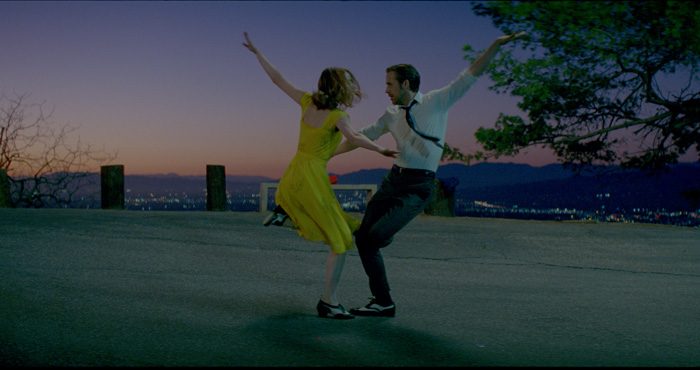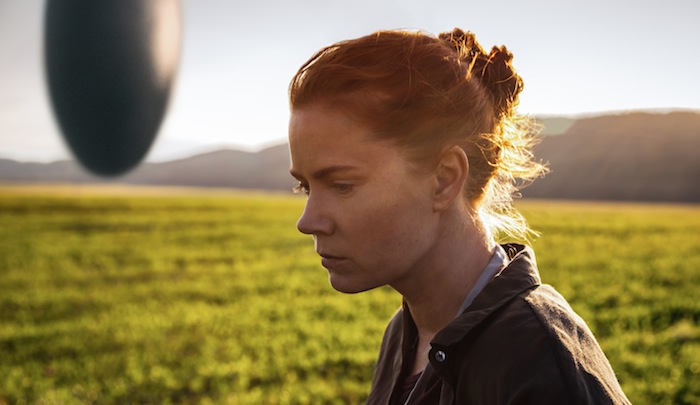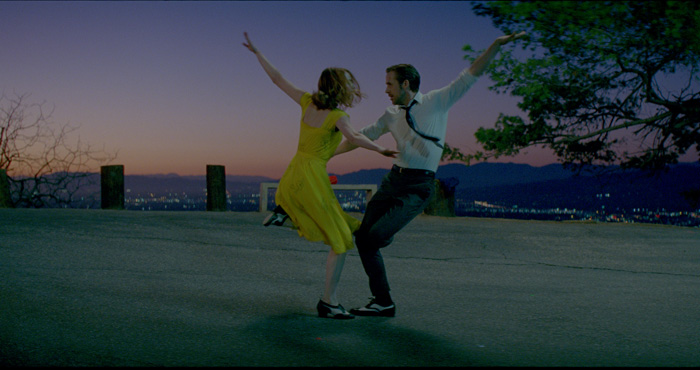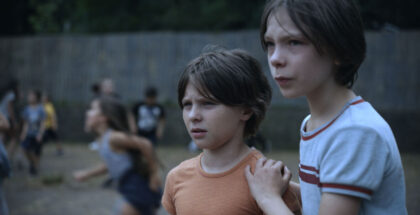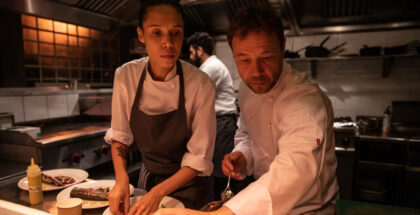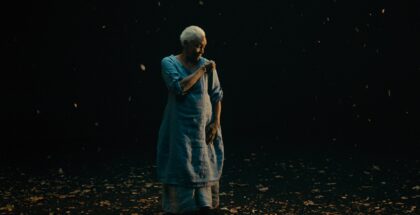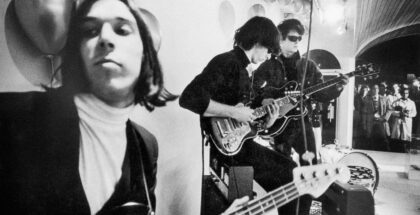LFF 2016 reviews: Arrival, La La Land, The Happiest Day in the Life of Olli Maki
David Farnor | On 10, Oct 2016
From Netflix’s Black Mirror and Amazon’s originals to MUBI’s Cannes acquisitions and Dogwoof’s live-streaming premiere of Werner Herzog’s Lo and Behold, the 2016 London Film Festival is embracing VOD like never before. We head to Leicester Square to check out some of the films and TV shows on offer.
The Happiest Day in the Life of Olli Maki
MUBI’s main attraction at the London Film Festival is a big hitter in all senses of the word. The Happiest Day in the Life of Olli Maki is a portrait of real life Finnish boxer Olli Maki, which won the Un Certain Regard prize at Cannes this year. That should give you a hint that this isn’t your usual boxing movie – and not just because it’s in Finnish and black-and-white.
Way back in 1962, Maki was pitted against the world featherweight champion, a battle that would put him, his manager and the country’s boxing industry on the global map. The nation rallies behind him in hope of victory, but it’s obvious right from the off that he’s got no chance of success. What emerges is an oddly bittersweet sports movie with barely any sports in. Rather than pack in training montages and other cliches, we follow the build-up to the match away from the arena, as Olli sits through tedious press conferences and stages painfully unbelievable behind-the-scenes moments for ever-present cameras.
Jarkko Lahti is fantastic as the fighter, his face channeling both optimism and failure, while director Juho Kuosman shoots in monochrome 16mm, giving everything the feel of a newsreel – a low-key vibe that makes it easy to overlook the film’s superb, realistic period design and precisely balanced tone, which perches between melancholy and the blossoming joy of new love (courtesy of Olli and Raija). Laugh-out-loud funny and shot through with the romance of defeat, this is truly knock-out stuff.
The Happiest Day in the Life of Olli Maki will be released by MUBI and New Wave Films in UK cinemas soon, before hitting the subscription service.
Arrival
Language is essential to life. Colours, nouns, names, verbs, abstract concepts, such as memory, love or time; without language, our brains have no way of comprehending existence, let alone talking about it with other people. Language can bring a community together, it can exclude outsiders, and, at its most primal, cognitive level, it can influence the way you think. The thought of aliens touching down on our planet, then, is a linguist’s dream. Denis Villeneuve’s Arrival embraces that grammatical nerdiness with intelligence and emotion, taking the logic of first contact to profound heights.
Amy Adams plays Louise, a language expert, who is hired to translate and communicate with the newly-arrived extra-terrestrials – and what emerges is a fascinating journey of discovery, as she and a colleague (Jeremy Renner) gradually unpick the creatures’ swirling circles of ink-like letters. What begins as a study of content, though – symbols, labels and definitions – turns into an earnest exploration of form, as Eric Heisserer’s script understands that order and relationships between objects are just as fundamental to meaning in any tongue. This building of scientific bridges is deftly contrasted with the breakdown of communications between humanity’s divided nations. The result is a beautifully composed genre movie that elevates the usual alien invasion cliches into something more philosophical. Arrival is science fiction at its most thoughtful, moving, and elegant.
La La Land
Jazz is dying. That’s what we learned from Damien Chazelle’s Whiplash, a whip-smart, crash-bang-wallop of a movie that jumped around the screen with the energy of its soundtrack. It’s a sentiment that crops up again in La La Land, Chazelle’s ambitious, incredible follow-up. Daring to go much bigger than his debut, La La Land is an old-school musical in the best possible way, full of tap-dancing, a longing for fame and a yearning for the golden days of cinema.
Emma Stone pops as Mia, an aspiring actress stuck working as a waitress, while Ryan Gosling shimmers (and shimmies) as a struggling jazz pianist. Together, they’re so electric that you suspect Elon Musk had a hand in the screenplay – and it’s their falling-in-and-out romance that underpins the whole show, their failings of the heart echoing their professional flops. (It’s subtly ironic that their most beautiful moment at Griffith Observatory only occurs because they decide to copy it from the big screen.)
Whiplash was all about getting the right timing. La La Land is all about two people whose lives are always out of sync. A flashback montage of their memories together is as magnificent as anything 1940s Hollywood could dream of – not just a masterful piece of editing, floating through sets and scenery like magic, but a demonstration of how well Chazelle understands the emotional power of music. He ricochets between notes with endless verve, before diving into melancholic solos with blue lighting and pink hues.
Justin Hurwitz burst onto the stage with Whiplash’s score and confirms himself here as one of film music’s great new talents, with nostalgic but new songs, which recall the wit of 2012’s How Do You Write a Joe Schermann Song?. But it’s together that their work really sings – witness, open-mouthed, the six-minute single-take opener, with every car in sight in a traffic jam turned into dancing props. The duo have a clear passion for improvising trumpets, sweet saxophones and big band numbers, an underlying love that turns this and Whiplash into feature-length music videos in their own right. Jazz may be dying, according to Chazelle’s scripts, but he’s bringing it back into fashion with irresistible style.


